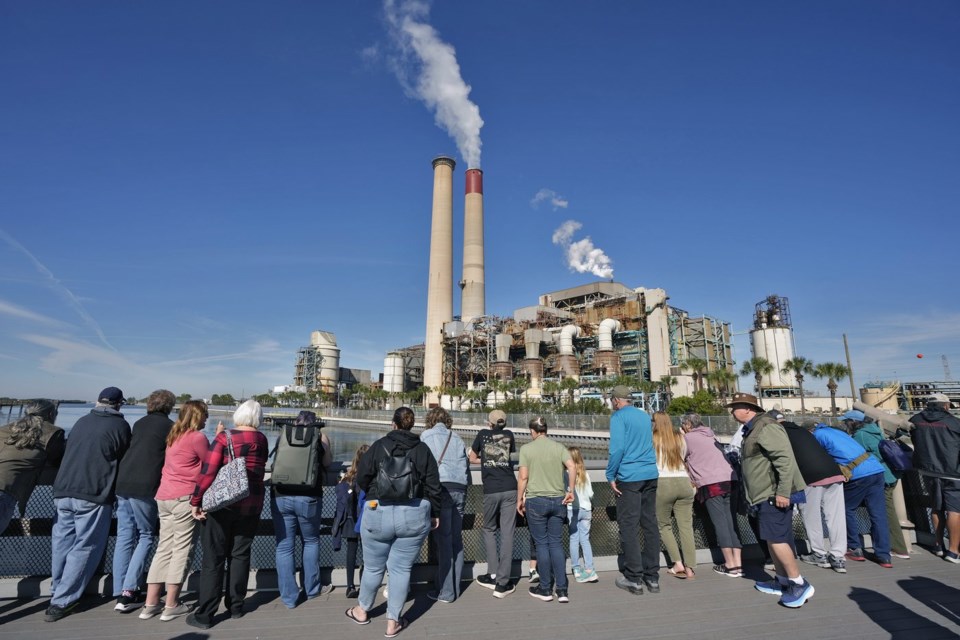TALLAHASSEE, Fla. (AP) — A group of young people in Florida say they believe the state’s continued reliance on fossil fuels is a violation of their constitutional rights and are suing the state agency that regulates public utilities in the hopes of forcing the energy companies to transition toward renewable energy sources.
The case is one in a string of lawsuits filed by kids and teenagers across the U.S. in recent years as climate activists turn to the courts for action.
Additional plaintiffs joined the lawsuit against the Florida Public Service Commission this week after it was initially filed in October.
The activists, ages 18 to 25, are taking aim at the agency's practice of routinely approving the long-range plans of public utility companies to continue their reliance on fossil fuels, despite provisions in Florida law outlining the state's intention to “reduce atmospheric carbon dioxide by promoting an increased use of renewable energy resources and low-carbon-emitting electric power plants.”
The plaintiffs say Florida’s continued use of greenhouse gas-emitting energy sources is fueling deadly heat, flooding rains and rising seas. The lawsuit claims that by furthering the state's dependence on fossil fuels, the commission is violating young people's “fundamental and inalienable right to enjoy and defend life," as guaranteed by the Florida Constitution, by threatening their ability to live in the state in the future.
“Why can’t future generations also enjoy the beauty and unique environment that we have here, just because of what our legislators and our governor and our state agencies are doing?” lead plaintiff Delaney Reynolds said.
A representative for the Public Service Commission said the agency does not comment on pending litigation.
The plaintiffs, all Miami-Dade County residents, are represented by the public interest law firm Our Children's Trust, which has filed cases in all 50 states advocating for climate action on behalf of young people.
Reynolds and Our Children's Trust teamed up in a previous lawsuit against Florida in 2018, arguing that the state's leaders were failing to act on climate and violating young people's constitutional rights. A judge dismissed that case, saying the issue is a matter for state lawmakers to address, not the courts.
Andrea Rodgers, the lead attorney on the Public Service Commission lawsuit, said the new case will be different because it's much more narrow, asking the court to review specific actions the agency is taking that she said run contrary to renewable energy policies approved by state lawmakers.
"We’re not asking them to recognize any new constitutional rights. This is clearly established Florida law," Rodgers said. “We simply want to ask them to review the commission’s conduct and tell us whether or not it’s constitutional.”
The law firm has had success in other states.
Earlier this year in a case brought by Our Children’s Trust, the Montana Supreme Court upheld a landmark decision requiring regulators to consider the effects of greenhouse gas emissions before issuing permits for fossil fuel development.
The firm also reached a settlement with Hawaii that includes an ambitious requirement to decarbonize the state’s transportation system over the next 21 years.
___
Kate Payne is a corps member for The Associated Press/Report for America Statehouse News Initiative. Report for America is a nonprofit national service program that places journalists in local newsrooms to report on undercovered issues.
Kate Payne, The Associated Press


